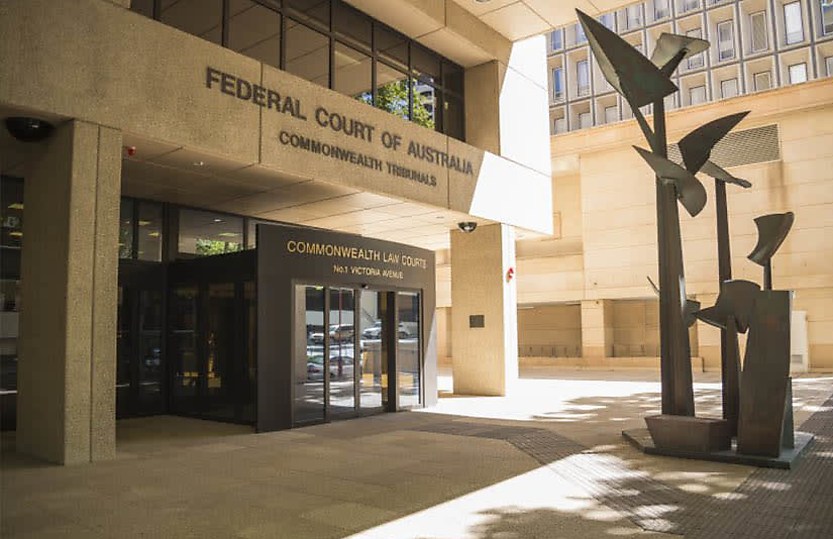ASIC appeals landmark Federal Court crypto case against Finder

Demonstrating its stated willingness to prosecute “riskier” cases, ASIC has lodged its notice of appeal of its landmark Federal Court crypto case loss handed down earlier this year.
ASIC has appealed the Federal Court decision that cryptocurrency investment offering, Finder Earn, was not a debenture and therefore not subject to consumer protection legislation.
The appeal is another example of the watchdog fulfilling the pledge of its deputy chair, Sarah Court, to “test the full boundaries” of the consumer laws in regulating cryptocurrency.
In December 2022, ASIC sued registered crypto exchange Finder Wallet, a subsidiary of financial comparison site, Finder.com, claiming it had operated an unlicensed financial services business.
Central to the claim was that Finder Earn – a product that made use of a cryptocurrency pegged to the value of the Australian dollar – was a debenture.
This kind of crypto investment is referred to as a “stablecoin” and is generally marketed as less volatile than typical cryptocurrency investments.
Finder Earn was discontinued in November 2022, following ASIC’s notification of its concerns and all funds were returned to investors. Upon shutting it down, Finder said rising interest rates had made the product’s modest returns less attractive.
Upon launching the product, Finder said it “not a banking product, not a savings account, but [offers] a stable, deposit-like return for pledging fiat into crypto.”
The Federal Court ruled for Finder Wallet, finding the product was not a debenture because the investment did not involve a deposit of money or a loan to Finder Wallet and that Finder Wallet did not undertake to repay money as a debt.
“Banks accept deposits from customers principally as a way of raising capital. That is not the purpose of a transfer by a customer of funds into a Finder Wallet account,” wrote Justice Brigitte Markovic.
Markovic rejected all grounds of ASIC’s case since each of the alleged contraventions of the Corporations Act was “predicated on establishing that the Finder Earn product is a debenture.”
On 14 March 2024, ASIC's case was dismissed, and the watchdog was ordered to pay Finder Wallet's legal costs.
The decision has been widely regarded as a defining moment in Australia's approach to crypto regulation.
Last year, the federal government released a proposed framework for digital asset platform regulation. The idea is that digital asset platforms would be integrated within the existing financial services regulatory framework, though this has yet to be acted upon.
Blockchain Australia chair Michael Bacina criticised ASIC’s decision to appeal, noting the need for “fit-for-purpose regulation … we have seen the damage in the US that the regulation-by-enforcement approach causes.”
“Clear guidance with meaningful early engagement by regulators seems the better pathway,” he added.
The ATO requires that tax is generally paid on cryptocurrency in the form of CGT, given it is seen as an asset and not money. That said, the ATO has yet to make a definitive ruling on its regulatory approach.
Behind shares, cryptocurrency is the second most common type of asset held in Australia according to ASIC. In 2022, Roy Morgan found that over 1 million Australians held at least one form of cryptocurrency.
In the two years leading to June 2022, ASIC received more than 2,200 reports of crypto-related misconduct and has signalled that digital currency will be a major priority area in the coming years.
Earlier this year, ASIC chair Joe Longo told The Australian Financial Review the watchdog intended to pursue a “riskier” litigation strategy across 2024 suggesting the hit-and-miss nature of its crypto track record might not come as a shock.
That said, ASIC has had some success in applying financial regulations to cryptocurrency offerings. For instance, the Federal Court found for ASIC in its decision against Block Earner, in which the court ruled the defendant had engaged in unlicensed financial services conduct in offering a crypto-backed product.
The Block Earner product was treated by the court as a managed investment scheme and a facility for making a financial investment.
ASIC deputy chair Sarah Court said the Block Earner decision was “important” in that it added “some clarity as to when crypto-backed products should be considered financial products.”
“Crypto assets are risky, inherently volatile, and complex. ASIC remains concerned that consumers do not fully appreciate the risks associated with products involving crypto assets,” added Court.
Senator Andrew Bragg, chair of a 2021 cryptocurrency senate inquiry, said it was crucial to balance innovation and consumer protections. This model of moderate regulation has largely defined Australia’s regulatory approach.
That said, many believe that regulation is needed to facilitate growth in the Australian crypto market. As noted in the inquiry’s final report, a comprehensive regulatory framework lends a sense of certainty to market participants.
“While other jurisdictions have moved forward in attempting to create regulatory frameworks that give market participants certainty and provide consumer protections, Australia has not yet introduced fit-for-purpose regulatory systems,” said the report.
About the author

